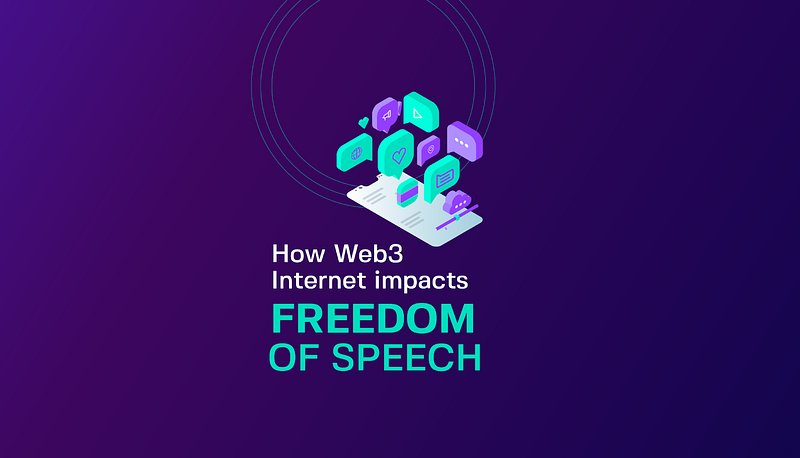How Web3 Internet impacts Freedom of Speech

The Right to Freedom of Expression is a fundamental human right according to the United Nations. However, this freedom isn’t absolute, and common limitations include things like classified information, trade secrets, non-disclosure agreements, the right to privacy, or speech related to public security, among many others.
This might’ve held up really well in the 1940s when the Right to Freedom of Expression article passed in Paris. Almost 4 decades after the internet was created though, everything is as tangled as a ball of yarn my cat has gotten his paws on.
In May 2021, referring to the ban Facebook imposed on Donald Trump, Michael McConnell, the co-chairman of Facebook’s oversight board labeled the firms banning policies ‘not transparent, unclear and internally inconsistent’ in an interview with Fox news.
As we’ve mentioned several times on Point Network’s blog, these rules are almost impossible to get perfectly fair. There’s also a huge disparity when it comes to these corporations enforcing laws around the world. While governments are still restricted by borders (well, maybe not in some cases), mega-corporations scoff at these squiggly lines. The perfect situation would be a completely politically and socially neutral company, or if not that, at least one that is absolutely fair and doesn’t let the personal biases of its leadership cloud its daily functions. That’ll never happen though, and the problem is, users have nowhere else to go.
According to a 2019 report by Sandvine (an analytics and market research firm), over 43% of internet traffic flows through Facebook, Apple, Amazon, Netflix, Google, and Microsoft. (FAANGM I suppose) That’s a lot. Google dominates the number of individual connections, while Netflix remains the single largest consumer of downstream traffic. It’s easy to tell that forays into streaming services have helped these brands get even more customers hooked. Imagine if one of these services went down for a bit.
Most people agree the term Web 3.0 was coined by Dr. Gavin Wood, one of the (many) co-founders of Ethereum, and refers to the ‘decentralization of data’, by incorporating blockchain into networks. While mainstream adoption hasn’t taken off yet, there have already been some crucial, ‘non-niche’ applications created using it.
Apple Daily was a pro-democracy newspaper based in Hong Kong. Under the National Security Law, the Hong Kong government has the authority to demand removal of content they deem secessionist, and that’s exactly what they did with Apple Daily.
Apple Daily published its last copy on the 24th of June 2021, and within 24 hours its website had been shut down, its social media wiped clean and all company assets were frozen. No one anticipated a crackdown this fast. Anonymous protestors immediately began uploading thousands of past articles to the decentralized file platform Arweave, ensuring those articles can’t be taken down.
Even China, which is generally an extremely centralized and authoritarian country, is optimistic when it comes to Web 3.0. Yao Qian, director of China’s Securities Regulatory Commission’s Science and Technology Supervision Bureau wrote an article called ‘Web 3.0: A New Generation of Internet that is Approaching’ where he stated he believed the internet was going to see a shift from Web 2.0 to Web 3.0.
On top of that, bigger internet and media companies like Reddit are pushing for the development of more decentralized platforms. Reddit plans on using Community Points as tokens on the Ethereum Mainnet and these can be used to vote on development and governance polls, tip other users, buy premium memberships, etc. Reddit has around 430 million active monthly users, and the potential implications of this move are huge. Although not necessarily Web 3.0, firms like Twitter and Facebook are increasingly looking at crypto adoption and the metaverse.
While there are concerns surrounding Web3.0 regulation, the advantages of a more private and censorship-resistant network ensure that there will be a significant Web 3.0 adoption in the near future. In the absence of an all-powerful governing entity, a lot of the responsibility also lies with users to step up and ensure these open-source decentralized applications remain a fair place for everyone, regardless of their political or ideological beliefs.
Disclaimer: This post is not financial advice.
Find us at www.Pointnetwork.io
Join our Telegram at: https://t.me/pointnetworkchat